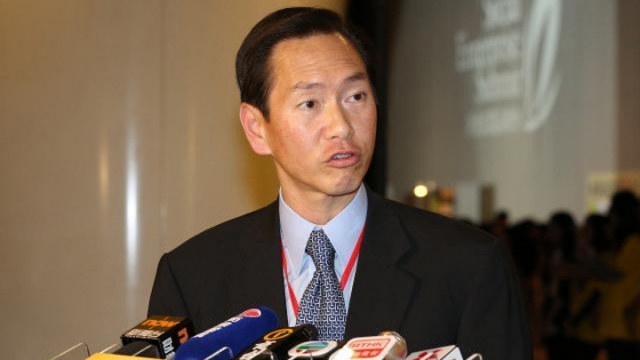The Education Bureau has warned that teachers could lose their professional qualifications if they advocate Hong Kong independence in schools.
The response came after a statement from the Academy of School Managers on Sunday, which claimed that some educators were advocating independence in schools and planning to organise groups to do so.
The Academy urged the bureau to “strictly enforce the law” for those who “violate the duties of educators, ethics, education laws and do not act in accordance with the demands for a teacher” so that ideas of independence would not spread in schools. Executive Councillor Bernard Chan is the honorary chairman of the Academy.

The bureau then told reporters in response that “no pro-independence advocacy or activities should appear in schools” and that discussion of such topics should be framed by the Basic Law.
“If teachers advocate Hong Kong independence in schools, they need to bear the relevant responsibilities and outcomes,” a spokesperson said. The outcomes could include warning or condemnation letters, or even the cancellation or rejection of the teachers’ qualifications.
“For teachers involved in unlawful activity or misconduct, the bureau will follow its existing mechanism to review the qualifications of the registered instructor,” a spokesman said.
The bureau also said schools are managed by their management committees. Schools should explain their expectations of teachers regarding their conduct and work performance, which say that teachers should not advocate independence in any way.
“We believe that teachers understand the importance of the Basic Law and the legal basis of the government in opposing independence,” it said. “If a certain teacher advocates independence, the management committees can make a suitable follow-up according to the nature and seriousness of the incident.”

‘An objective viewpoint’
James Hon Lin-shan, the former chairman of the Council on Professional Conduct in Education, told Apple Daily that there should not be any restricted areas in teaching, and teachers should help students to discuss and fully understand society’s debate on independence.
He said the professional code of teachers state that they “should adopt an objective viewpoint in discussing controversial matters with students,” they should do their best to “nurture in students the concepts of freedom, peace, equality, rationality and democracy” and “encourage students to think independently and to form their own rational judgements based on knowledge.”
Hon urged teachers to stick to their professional code. He also added that the bureau’s statement may stop some teachers from discussing independence, and it may cause another incident like the one involving the National Education scheme in 2012, in which teachers were only able to give one side of the viewpoints.
In 2012, more than 120,000 attended a week-long rally at the government headquarters to oppose the National Education curriculum for schools in Hong Kong, after a “patriotic” guideline for the curriculum drew controversy.

Andrew Chiu Ka-yin, a Democratic Party district councillor and school administrator, stated his strong opposition to the Academy’s position in an email statement.
He said the Academy was formed early this year and consists of schools with pro-Beijing backgrounds in Kwun Tong, since officials from the China Liaison Office attended its inauguration.
He added that the government does not have the right to interfere with school affairs if independence thinking – or having different opinions on the constitution – do not involve any criminal actions.
“[The statement] is threatening the freedom of thought and speech of teachers and students, against the spirit of rule of law, and cannot represent all school administrators,” he said.
